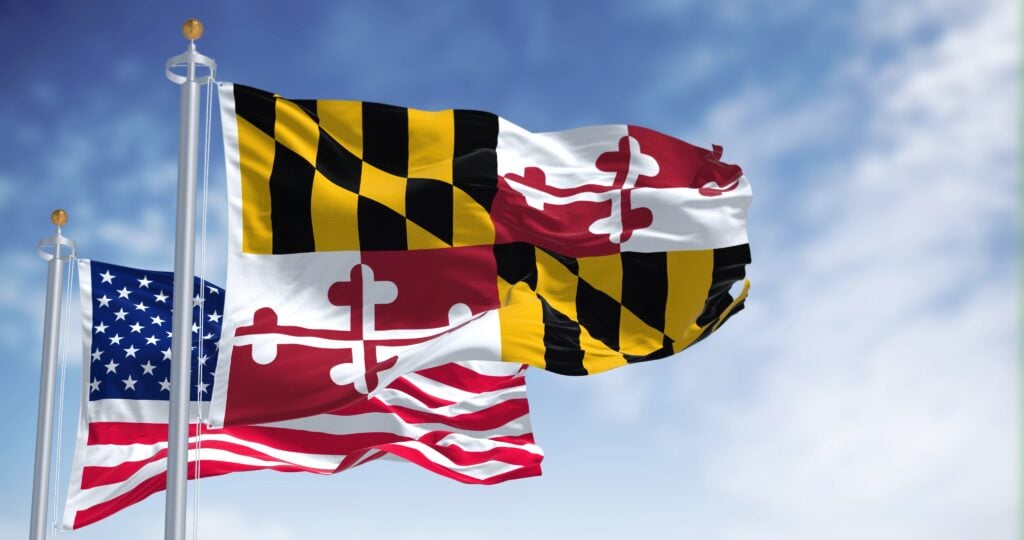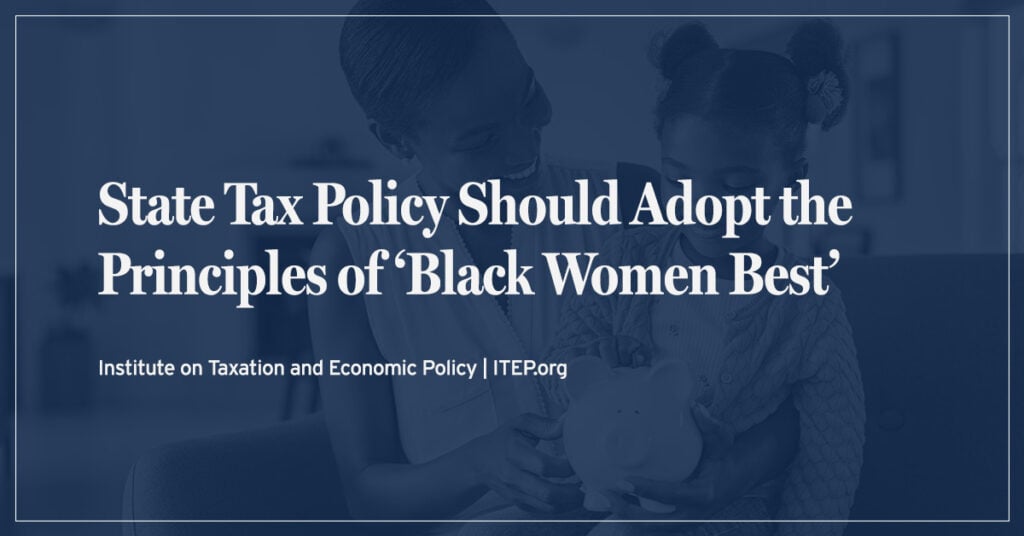
ITEP's Research Priorities
- 2025 tax debate
- Blog
- Cannabis Taxes
- Corporate Taxes
- Corporate Taxes
- Earned Income Tax Credit
- Education Tax Breaks
- Estate Tax
- Federal Policy
- Fines and Fees
- Georgia
- Immigration
- Income & Profits
- Income Taxes
- Inequality and the Economy
- ITEP Work in Action
- Local Income Taxes
- Local Policy
- Local Property Taxes
- Local Refundable Tax Credits
- Local Sales Taxes
- Maps
- Media Quotes
- News Releases
- OBBBA
- Other Revenues
- Personal Income Taxes
- Property & Wealth
- Property Taxes
- Property Taxes
- Publications
- Refundable Tax Credits
- Sales & Excise
- Sales, Gas and Excise Taxes
- Sales, Gas and Excise Taxes
- SALT Deduction
- Select Media Mentions
- Social Media
- Staff
- Staff Quotes
- State Corporate Taxes
- State Policy
- State Reports
- States
- Tax Analyses
- Tax Basics
- Tax Credits for Workers and Families
- Tax Credits for Workers and Families
- Tax Guide
- Tax Principles
- Tax Reform Options and Challenges
- Taxing Wealth and Income from Wealth
- Toolkits
- Trump Tax Policies
- Video
- Webinar
- Who Pays?
Idaho Center for Fiscal Policy: House Bill 40 Further Cuts the Income Tax, Disproportionately Benefiting Wealthy Idahoans
January 31, 2025
Every year, Idaho spends millions of tax dollars to make sure families receive a good education, live in safe homes and communities, and enjoy good health. However, over the last several years, the state has passed deep and costly tax rate cuts that make our tax system more regressive- disproportionately burdening Idahoans with the lowest incomes. House Bill 40 continues to perpetuate this trend by providing relief disproportionately to wealthy households.
New York Times: What Mass Deportations Would Do to New York City’s Economy
January 31, 2025
That number comes not from a left-leaning human rights group intent on fostering sympathy for people who crossed the border illegally, but rather from the wonky Institute on Taxation and Economic Policy, a nonpartisan Washington think tank. The organization’s research also tells us that nationally, more than a third of the tax dollars paid by undocumented immigrants go toward payroll taxes, which are aimed at backing entitlement programs that these workers are not entitled to access.
Alabama Rise: 56 Alabama Groups Urge Congress to Reject Tax Cuts for the Wealthy
January 30, 2025
Congress should oppose efforts to increase tax breaks for wealthy Americans and highly profitable corporations this year, 56 organizations across Alabama wrote in a letter sent to Alabama’s congressional delegation Wednesday. Lawmakers instead should seek to boost tax credits that expand opportunities for working people and families, the letter said.
Oregon Center for Public Policy: Groups Call on Oregon Congressional Delegation to Reject More Tax Breaks for the Wealthy
January 30, 2025
A dozen Oregon organizations sent a letter to the state’s congressional delegation today calling on them to oppose tax cuts for the wealthiest individuals and corporations as part of the upcoming federal tax debate in 2025.
Oklahoma Policy Institute: FACT CHECK: How Would the Governor’s Proposal to Cut, Eliminate Personal Income Tax Affect Oklahoma?
January 30, 2025
The Institute on Taxation and Economic Policy has estimated how much these proposed tax cuts would impact Oklahomans, by income level:
The New Statesman: Donald Trump’s Florida Project
January 30, 2025
But Mar-a-Lago is just the crown jewel in the Floridisation of US politics. A born and bred New Yorker, Trump switched his primary residence from Manhattan to Palm Beach during his first term, stating that he had “been treated very badly by the political leaders of both the city and state [of New York]. Few have been treated worse.” There was also a more practical rationale for becoming a Florida resident: lower taxes. Florida is one of just nine states that do not levy state income taxes on residents. According to a recent report by the Institute on Taxation and…

More details on this year’s batch of major tax proposals are emerging from statehouses - and some revenue cuts look like they could be steep. A governor-backed and House-passed plan in Mississippi would phase out the personal income tax, while a recent tax cut proposal out of Idaho is anchored by a $253 million dollar income tax cut.
Maryland’s Tax Reform Likely Won’t Cause Millionaire Migration
January 30, 2025 • By Nick Johnson

The moment Gov. Wes Moore announced his proposal to reform Maryland’s tax system, in part, by raising income tax rates on high-income households, opponents began predicting that wealthy people would respond by leaving. Experience from other states says that’s not the case.
Yahoo News: Simu Liu Speaks Out on Trump’s New Tax Plan
January 29, 2025
Simu Liu has spoken out against President Donald Trump’s newly proposed U.S. tax plan, which seeks to extend the 2017 Tax Cuts and Jobs Act (TCJA) and introduce new measures that primarily benefit high-income earners and corporations.
Trump and Congress’ Tax Package Likely to Worsen Racial Inequities
January 29, 2025 • By Brakeyshia Samms

While the country transitions to a new, yet familiar, presidential administration, lawmakers must keep in mind: fighting racial injustice should still be one of the focal points of this year’s tax debates. In theory, the debate over extending much of 2017’s Trump tax law represents an opportunity to advance racial equity. In practice, the tax package is likely to do the opposite, worsening racial inequities that already exist.
Mother Jones: Trump Tax Cuts Not Just Good For Billionaires, Say Billionaires
January 28, 2025
A group founded by the billionaire Koch brothers is on a mission: to extend the massive tax cuts Trump instituted in his first term, and to convince working-class Americans that those cuts benefit them, too—despite ample evidence to the contrary.
Barron’s: Trump’s Immigration Crackdown Could Play Havoc with the Economy
January 28, 2025
The White House is making good on President Trump’s campaign promises to eject unauthorized immigrants from U.S. soil, with deportation flights rolling out over the weekend. But the economic consequences of deportation and massive rollbacks on immigration could be severe.
The Guardian: Charles Koch’s Network Launches $20m Campaing Backing Trump Tax Breaks
January 27, 2025
Americans for Prosperity (AFP), the flagship political arm of the rightwing network formed by the fossil fuels billionaire Charles Koch and his late brother David, is launching a multimillion-dollar campaign backing Donald Trump’s plans to extend tax cuts and roll back federal regulations.
Salon: The High Opportunity Cost of Trump’s Economy
January 27, 2025
President Donald Trump is returning to the White House with the strongest economy in the world; unemployment is low, inflation continues to trend downward and growth is accelerating. Yet, Trump is about to unravel our post-COVID recovery with an attempt to enact a toxic economic agenda of tariffs, mass deportations and tax cuts for the mega-rich. All paid for with cuts to programs that benefit working class Americans.
Public Citizen: DOGE Delusions: A Real-World Plan To Crack Down on Corporate Handouts, Tax the Rich and Invest for the Future
January 23, 2025
On November 12, 2024, President-elect Donald Trump announced that billionaires Elon Musk and Vivek Ramaswamy would co-chair a new entity, called the “Department of Government Efficiency” (DOGE). “Together,” Trump asserted, “these two wonderful Americans will pave the way for my Administration to dismantle Government Bureaucracy, slash excess regulations, cut wasteful expenditures and restructure federal Agencies – Essential to the ’Save America’ Movement. … It will become, potentially, the ’Manhattan project’ of our time.”
State Rundown 1/22: Tax Policy, Affordability, and Where It Misses the Mark
January 22, 2025 • By ITEP Staff

As state legislative sessions ramp up many lawmakers discuss their prioritization of affordability of necessities like food and housing as they craft their legislative agendas. Arkansas, Mississippi and Utah are looking to reduce or fully exempt groceries from their state sales taxes. Meanwhile, multiple proposals to reduce property taxes are making their way around state […]
State Rundown 1/15: Tax Debates Heat Up Despite Winter Weather
January 15, 2025 • By ITEP Staff

While frigid temperatures expected across a large swath of the country, major tax proposals are heating up in the states. Governors are giving their State of the State addresses and state lawmakers have begun to convene for 2025. New York Gov. Kathy Hochul announced plans to expand the state’s Child Tax Credit earlier this year and has since announced nearly $1 billion in income tax cuts. Maryland Gov. Wes Moore unveiled a new tax proposal aimed at helping close the state’s looming revenue shortfall. The plan would increase taxes on the wealthy and cut taxes for many low- and middle-income…
MSNBC: Trump Inverts Reality with His Claims about Migrants Hurting Social Security
January 15, 2025
A key plank of President-elect Donald Trump’s campaign tirades against undocumented immigrants was that they drain vital social services that are facing insolvency threats. “Unlike the Democrats, who are KILLING SOCIAL SECURITY AND MEDICARE by allowing the INVASION OF THE MIGRANTS, I will NOT, under any circumstance, allow either of these two precious GEMS to be even touched under a Trump Administration,” he posted on Truth Social in one characteristic broadside last year.
New York Times: How Unauthorized Immigrants Help Finance Social Security Benefits
January 13, 2025
The Social Security Administration receives billions in free money each year from an unexpected source: undocumented immigrants.
Crain’s Chicago Business: Cook County’s Property System is Complex and Burdensome. Here’s How It Can Be Fixed.
December 17, 2024
Discontent about property tax increases persists not only among Chicagoans, but also among Cook County residents and property owners nationwide. Relief is what everyone wants, as seen by the rate at which municipalities put property tax-related referendums and legislation on the ballots in 2024, says Rita Jefferson, a policy analyst for the Institute of Taxation & Economic Policy, or ITEP.
Foreign Policy: What Trump’s Mass Deportations Would Mean for the U.S. Economy.
November 26, 2024
U.S. President-elect Donald Trump has vowed to conduct “the largest deportation effort in American history,” no matter the price tag—but the economic costs of such a campaign may be bigger than he has bargained for.
Capital & Main: Why Mass Deportations Would Cripple California’s Economy
November 22, 2024
Trump has, after all, already made full-throated declarations that his administration will conduct the largest deportation of undocumented residents in U.S. history. That should resonate in a place like California, with its estimated 1.8 million undocumented immigrants — and it certainly would shake up a state agriculture industry in which nearly half of all workers are undocumented.
Public News Service: Colorado Working Families Would Pay More Under Trump Tax Proposals
November 21, 2024
President-elect Donald Trump and Republicans in Congress have promised to pass a new tax bill, and a new report breaks down the expected winners and losers. Joe Hughes, senior policy analyst with the nonpartisan Institute on Taxation and Economic Policy, says based on Trump's campaign proposals, the top one percent - those making more than $900,000 a year - will see their tax bill go down by more than $36,000, on average.
State Tax Policy Should Adopt the Principles of ‘Black Women Best’
November 20, 2024 • By Brakeyshia Samms

Focusing policy analysis on Black women illustrates how Black women have long shouldered the shortcomings of the economy and clearly points to solutions that work for all. Black women are at their best when they are financially secure, healthy, and free – and our economy is at its best when all people can thrive and benefit.
USA Today: Trump Deportation Plan Could Target as Many as 1.1 Million People in Florida
November 20, 2024
With President-elect Donald Trump poised to declare a national emergency to clear the way for the mass deportation of undocumented migrants, Florida may face wholesale disruption in the coming year. Immigration experts say about 5% of Florida’s population – 1.1 million residents – are living here without legal permission. How far Trump goes will be critical in gauging deportation’s impact on communities, families, workplaces and the Florida economy.
